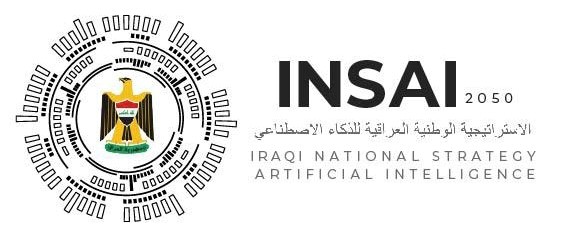Cybercrime and activation of artificial intelligence
- The general context
- Executive steps taken
- Using artificial intelligence in the security system
- The next stage

First: the general context
In light of the escalating challenges associated with digital blackmail, deepfakes, and the spread of cybercrime in Iraq, and the growing need for a secure digital environment that respects human rights and freedom of publication, security agencies, led by the National Center for Digital Security, have begun developing an integrated framework aimed at:
Reviewing the current cybercrime law and developing a modern, comprehensive cybercrime law that is in line with technical changes, respects human rights principles, and serves the state's interests.
Second: Executive steps taken
1. Coordination between security agencies
The following parties were contacted:
* The National Center for Digital Security as a coordinating administrative body
* Ministry of Interior
* Iraqi National Intelligence Service
* National Security Service
It was agreed to define clear responsibilities for each party, while ensuring the protection of institutional rights and confidentiality of information.
2. Assigning investigation and follow-up tasks
* The National Center coordinates with global platforms Meta, Google X, and others.
* Security agencies assume investigative, monitoring, and digital intelligence sharing roles.
3. Referral of specialized academic study
A copy of the study entitled "The National Plan to Combat Deepfakes and Digital Extortion in Iraq", prepared by researcher Mustafa Kamel, was referred to:
* The Council of Advisors in the Prime Minister's Office
* Ministry of Interior
* National Intelligence Service
* National Security Service
This is for the purpose of reviewing it technically and legally and studying it in terms of applicability in the Iraqi security reality.
Third: Using artificial intelligence in the security system
Work is underway to integrate artificial intelligence tools into supporting security decision-making, in multiple areas
Most notable:
1. Monitoring and analyzing digital content
* Automatically analyze suspicious posts.
* Learn about organized and funded Bots Trolls campaigns.
* Deepfake Detection Detect fake content using techniques
2. Support security investigations
* Building forensic data analysis systems based on predictive artificial intelligence.
* Identify cybercrime patterns and identify sources of attacks.
3 Linking with international databases
* Integration with INTERPOL platforms and global digital security organizations.
* Identify digital criminals using certified digital fingerprints.
4. Analysis of networks of relationships and incitement
* Interactive mapping of links between suspicious accounts.
* Support security verification of incitement and hate campaigns.
Fourth: The next stage
1. An official meeting was held with researcher Mustafa Kamel to discuss mechanisms for activating the study within the Iraqi security and legal reality.
2. Forming a joint legal technical team to develop an updated draft of the Cybercrime Law, which includes:
* Deepfake crimes.
* Digital extortion.
* Data misuse.
* Ethical standards for protecting digital rights.
3. Implementing a pilot project for an intelligent surveillance system at the national level, with joint funding between security agencies and possible international support.
4. Preparing a roadmap for digital transformation in national security, with artificial intelligence at the heart of analysis and intervention mechanisms.

